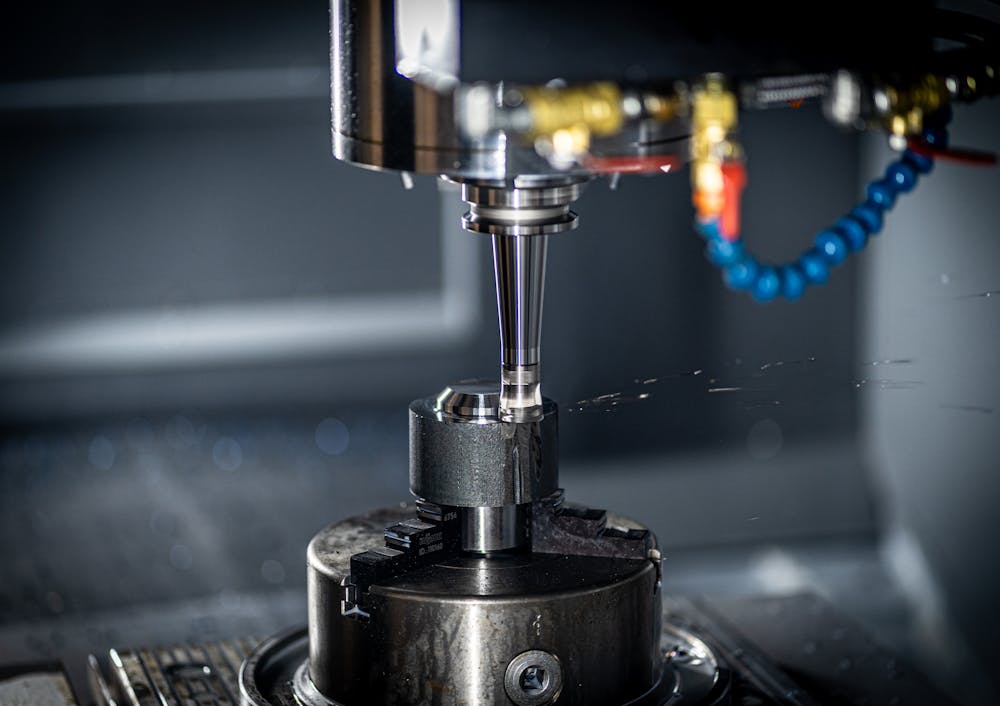CNC machining, or Computer Numerical Control machining, is a significant advancement in manufacturing that merges computer technology with traditional machining. It enhances productivity and precision, offering unmatched accuracy and efficiency. This article introduces CNC machining, its components, benefits, and its transformative role in modern manufacturing.
What is CNC Machining?
CNC machining refers to the automated control of machining tools via a computer. These machines interpret a digital blueprint and execute precise cutting, drilling, or shaping operations on a workpiece. Unlike manual machining, where human operators control the tools, CNC machines execute pre-programmed sequences, resulting in highly accurate and repeatable operations.
Key Components of CNC Machines
- Control Unit: The control unit is the brain of a CNC machine. It interprets the computer-aided design (CAD) files and converts them into precise instructions for the machine’s movement and operation. This unit ensures that the tool paths are executed accurately, maintaining the desired dimensions and shapes.
- Machine Tool: The machine tool is the mechanism responsible for performing the actual machining operations. This can include lathes, mills, routers, or grinders, each suited to specific types of workpieces and tasks. The tool’s movement and operation are precisely controlled by the CNC system.
- Workpiece: The workpiece is the material being machined. It is secured to the machine table and manipulated by the tool to create the desired shape or feature. Materials can range from metals and plastics to composites and wood, depending on the application and industry.
Advantages of CNC Machining
- Precision and Accuracy: CNC machines offer unparalleled precision, capable of maintaining tight tolerances and intricate details. This level of accuracy is critical for industries requiring high-quality components, such as aerospace, automotive, and medical device manufacturing.
- Efficiency: Automation in CNC machining minimizes human intervention, leading to faster production cycles and reduced errors. This efficiency is crucial for high-volume manufacturing, allowing for consistent output and reduced lead times.
- Versatility: CNC machines are adaptable to various materials and applications. They can switch between different tasks quickly, making them suitable for both small-batch and large-scale production runs. The versatility is further enhanced by the ability to program complex geometries that would be challenging to achieve manually.
Common Materials and Industries
CNC machining manufacturers offer compatibility with a wide range of materials, including metals like aluminum, steel, and titanium, as well as plastics and composites. This adaptability makes CNC machining invaluable across industries such as aerospace, automotive, electronics, and telecommunications. Its ability to produce parts with high precision and consistency ensures that components meet stringent industry standards.
Future Potential of CNC Technology
As technology continues to advance, the future of CNC machining appears promising. Innovations in artificial intelligence and machine learning are poised to enhance the capabilities of CNC systems, enabling even greater precision and efficiency. The integration of IoT (Internet of Things) technologies can facilitate real-time monitoring and predictive maintenance, reducing downtime and improving productivity.
The impact of CNC machining on innovation is profound. By enabling the rapid prototyping and production of complex parts, CNC technology fosters creativity and accelerates product development. As a result, industries can bring new products to market more quickly and efficiently, maintaining a competitive edge in an ever-evolving landscape.
Conclusion
Now that you have a basic understanding of CNC machining, its components, and its benefits, you can appreciate its significance in modern manufacturing. As technology continues to evolve, CNC machining is set to revolutionize industries further, driving innovation and progress toward a more automated and precise future.


